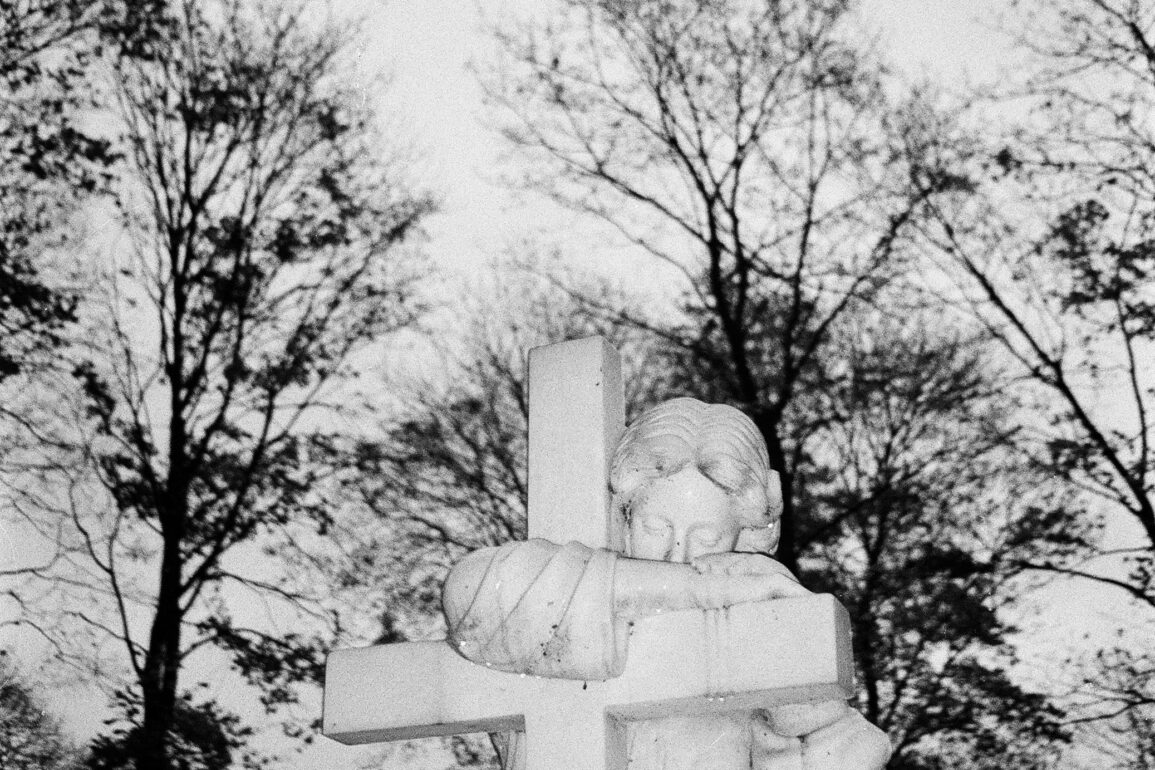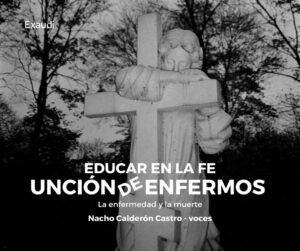We reach the end of the journey through the sacraments as a means of educating our children in the faith, having to make reference to the facts that today’s society insists on trying to hide and disguise and although it knows that it is inevitable, it even tries to avoid: illness and death.
Both are part of our life, as in any family, but how lucky we are to live illness and death with faith! And how wonderful to have the sacrament of anointing of the sick. What peace it gives us!
Our children will watch us, very attentively, probably more than usual, as we experience the illness and death of our loved ones. We must live in such a way that they see that even in pain, we can, we know, and we want to draw closer to the Lord. We don’t know how to do it any other way! Likewise, we don’t want to live it any other way!
Furthermore, the Church wanted this wonderful transformation from “the extreme unction,” which seemed to limit the sacrament to the last moments, to “the anointing of the sick,” which opens sanctifying grace to any person who is in a situation of serious illness, although it is not terminal.
If we look at the most recent definitions of the concepts of health and illness, which have overcome the limitation of the corporal or physical reference and admit all the psychological and emotional dimensions, I wonder if we should not request the anointing of the sick, many more of whom they receive it. Don’t we feel that we have wounds that are difficult for us to heal, mistakes that we cannot forgive ourselves, offenses that we cannot overcome and that keep us in a state of restlessness, bad feeling and discouragement that requires a deep healing process?
It is becoming more and more evident that the most fragile health is emotional health, and that the number of casualties in the daily combat of life is very high. I am convinced that in this situation, the sanctifying grace of the sacrament of anointing of the sick becomes particularly appropriate, if not necessary.
As far as sister death is concerned (as Saint Francis of Assisi called it), Jesus opened the doors of heaven for us, and when one of our loved ones dies and crosses its threshold, we must be looking to the heights, and take advantage of that opportunity to try to see through some crack that remains the Life that lies beyond. Sometimes we fail to see anything at that moment, and that makes some think that our faith is just an attempt to appease the pain. We shouldn’t worry. It is time to talk about Hope. The Lord knows our nature well, He made it! He knows how much we like surprises. How is He going to reveal to us what awaits us?
In death, under the watchful eyes of our children, we will have a magnificent opportunity to educate our children in the coherence of the faith. I’m not just talking about keeping it together in such tough times. If not, how we live, one of the worst side effects of death: inheritance.
Who has not suffered the tearing apart from their family due to an inheritance? But how is it possible?! It is. Judging by the frequency of events, it can be said that it is almost inevitable.
The distribution of the inheritance completely calls into question our coherence as children of God. And the result and the conversations that will occupy our family life for days and months will be a very clear exposition of our faith to our children.
Be very careful! With throwing away all our efforts to live and educate our children in the faith for a damned inheritance.
Remember that because we are parents we constantly live in an escape, but in these moments of so much uncertainty for children, the focus is fixed on our behavior.
How we live these moments can be a crucial point in strengthening your faith or in absolute discredit because of our incoherence.
EDUCATE IN THE FAITH
ANOINTING OF THE SICK
Illness and death
Nacho Calderón Castro – vocals











